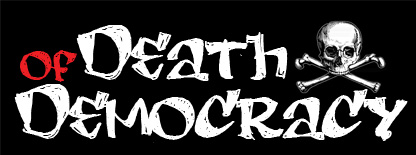on NZCPR
 “The death of democracy is not likely to be an assassination from ambush. It will be a slow extinction from apathy, indifference, and undernourishment.” – Robert Maynard Hutchins
“The death of democracy is not likely to be an assassination from ambush. It will be a slow extinction from apathy, indifference, and undernourishment.” – Robert Maynard Hutchins
A country’s constitution belongs to the people. It’s the charter that sets out the basic rules by which a nation is governed: the rights and safeguards of citizens; how state power is exercised; the type of voting system; the number of Members of Parliament; whether representatives are elected freely or through some form of quota system.
In a well-functioning democracy, constitutional change is careful – guided by politicians who are acting in a principled, non-partisan manner, with citizens fully engaged in the reform process.
In the lead up to the 2008 general election, constitutional matters loomed large. National was promising to hold a referendum on the electoral system to give New Zealanders a say on whether they wanted to retain MMP or change to an alternative system of voting. The Maori Party was promising to establish a constitutional review, aimed at “giving effect to the Treaty of Waitangi”.
These two parties also campaigned strongly on the Maori seats. The National Party wanted to abolish them: “At the conclusion of the settlement of historic Treaty claims, National will begin a constitutional process to abolish the Maori seats. National wishes to see all New Zealanders on the same electoral roll.”[1] [Read more…]








Leave a Reply
You must be logged in to post a comment.